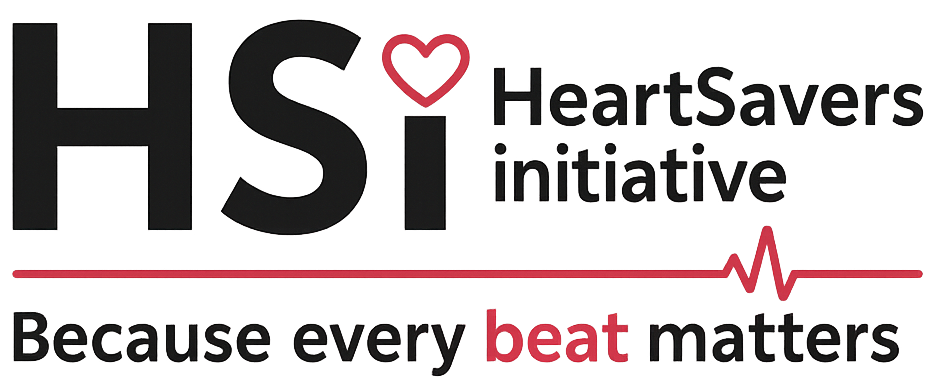Cardiovascular disease remains the leading cause of death worldwide, accounting for an estimated 17.9 million lives lost each year, according to the World Health Organization (WHO). Despite these staggering statistics, many of these deaths are preventable through increased awareness, early detection, and lifestyle modifications. The Heart Health Awareness Project was initiated with the core mission of empowering communities through education about heart health risks, prevention strategies, and the importance of maintaining a healthy lifestyle.
This comprehensive initiative is built upon three main pillars: education, engagement, and empowerment. Through interactive workshops, distribution of educational materials, and partnerships with local healthcare providers, our goal is to bridge the gap between medical knowledge and community understanding, ensuring that individuals from all walks of life are equipped with the tools and information they need to take control of their heart health.
The Importance of Heart Health Awareness
Heart disease encompasses a range of conditions, including coronary artery disease, heart failure, arrhythmias, and congenital heart defects. Many people do not realize they are at risk until it is too late. Risk factors such as high blood pressure, high cholesterol, diabetes, obesity, smoking, excessive alcohol use, and physical inactivity contribute significantly to heart-related conditions. While these risk factors are prevalent, they are also largely modifiable through lifestyle changes and medical management.
Unfortunately, health disparities, misinformation, and limited access to preventive care contribute to the ongoing prevalence of cardiovascular disease in underserved communities. The Heart Health Awareness Project seeks to counteract these trends by promoting proactive heart health practices and fostering a culture of wellness.
Project Objectives
The Heart Health Awareness Project is designed to achieve several key objectives:
- Increase Public Awareness
Educate individuals about the signs and symptoms of heart disease and the importance of early intervention. - Promote Preventive Measures
Share strategies for preventing heart disease through healthy eating, regular exercise, smoking cessation, and routine health screenings. - Encourage Community Engagement
Create opportunities for community members to participate in heart health initiatives, including workshops, health fairs, and support groups. - Distribute Accessible Educational Materials
Provide free brochures, infographics, and digital resources tailored to various literacy levels and languages to reach diverse audiences. - Collaborate with Healthcare Professionals
Partner with physicians, nurses, dietitians, and fitness experts to deliver accurate, evidence-based information.
Activities and Implementation
1. Community Workshops
Our workshops are the heart of this initiative. Hosted at community centers, schools, churches, and local libraries, these sessions are designed to be interactive, informative, and culturally sensitive. Topics covered include:
- Understanding the anatomy of the heart
- Recognizing early warning signs of heart attack and stroke
- The role of diet and nutrition in heart health
- Managing stress and mental health
- Creating a sustainable exercise routine
- Understanding cholesterol, blood pressure, and glucose levels
Each session includes live demonstrations, such as healthy cooking classes, CPR training, and exercise routines adapted for various ages and fitness levels. Participants also have opportunities to ask questions, share personal experiences, and receive guidance from medical professionals.
2. Health Screenings
To help individuals monitor their heart health, we partner with local clinics and mobile health units to provide free or low-cost screenings. These typically include:
- Blood pressure measurement
- Cholesterol and glucose testing
- Body mass index (BMI) assessment
- Heart rate and rhythm checks
Screening events are held in conjunction with workshops or as stand-alone health fairs. Participants receive immediate feedback and referrals to appropriate medical services if any issues are detected.
3. Distribution of Informative Materials
We believe that knowledge is power. To ensure lasting impact beyond workshops, we distribute a range of educational materials, including:
- Printed brochures and booklets
- Posters in community centers and public transportation hubs
- QR-code-enabled guides linking to videos and websites
- Social media campaigns with infographics and testimonials
All materials are developed in consultation with health literacy experts to ensure accessibility. We also provide translations in multiple languages for multicultural communities.
4. Youth Engagement and School Programs
Heart health begins early. To instill lifelong habits, we engage students through school-based programs that combine education with physical activity. These include:
- Classroom sessions on nutrition and anatomy
- “Healthy Heart” art and essay contests
- Walk-a-thons and jump rope challenges
- Gardening and cooking classes promoting fresh food choices
We work closely with school administrators and parent-teacher associations to align programming with educational standards and health goals.
Community Impact
Since its launch, the Heart Health Awareness Project has reached over 15,000 individuals across urban and rural areas. The feedback from participants has been overwhelmingly positive. Many have reported lifestyle changes such as improved diets, increased physical activity, and regular health check-ups. Some key outcomes include:
- A 40% increase in individuals who could correctly identify heart attack symptoms
- Over 500 people referred to follow-up care after abnormal screening results
- More than 1,000 youth participating in school-based fitness programs
- A growing network of community volunteers and peer educators
By embedding heart health education into the fabric of the community, we are witnessing a shift in attitudes—people are not only more informed but also more motivated to take charge of their well-being.
Challenges and Lessons Learned
Like any community-based initiative, the Heart Health Awareness Project has faced challenges. Scheduling workshops that accommodate diverse working hours, overcoming language and cultural barriers, and securing consistent funding are ongoing concerns. Additionally, sustaining engagement beyond a single event requires creative follow-up strategies.
Some key lessons include:
- Partnerships are powerful: Collaborating with trusted community leaders and organizations increases credibility and participation.
- Tailored messaging matters: Different demographics require different communication strategies. What resonates with seniors may not work for teenagers.
- Technology expands reach: Virtual workshops and social media content help us connect with a broader audience, especially in remote or underserved areas.
The Road Ahead
As we look to the future, our goals include expanding our reach to more communities, developing a mobile app for heart health tracking, and creating train-the-trainer programs to build local capacity. We also aim to strengthen data collection to evaluate long-term behavioral changes and health outcomes.
The Heart Health Awareness Project is more than a health campaign—it’s a movement toward informed, empowered, and healthier communities. By continuing to educate, engage, and inspire individuals, we hope to make heart disease not only treatable but also preventable for future generations.
Get Involved
Whether you’re a healthcare professional, a community organizer, a student, or simply someone who cares, there are many ways to get involved:
- Volunteer at a local event
- Help distribute educational materials
- Sponsor a workshop or screening
- Share your heart health journey
- Advocate for healthy policies in your school, workplace, or city
Together, we can build a heart-healthy future for all.

